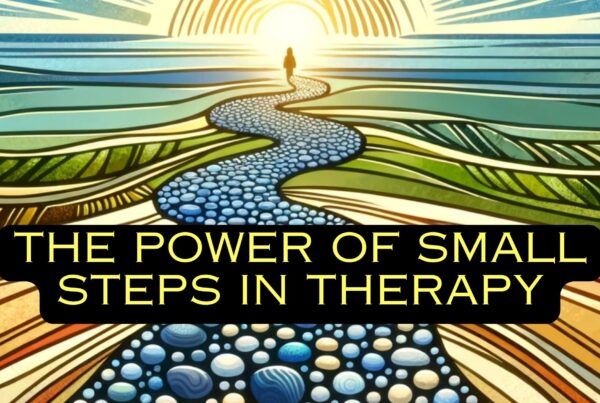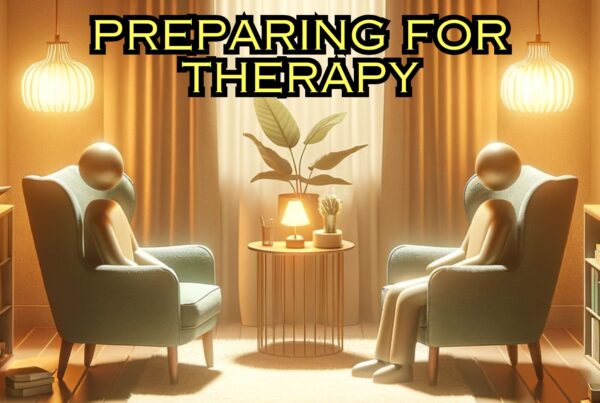The Importance of Doing Nothing: A Transformative Approach to Mental Health
In an era where constant activity and productivity are highly valued, the concept of ‘doing nothing’ seems counterintuitive. However, there’s a profound importance in understanding and embracing the right kind of inaction. This blog explores the importance of doing nothing, and why doing nothing, in a specific and mindful way, can be the most significant action you take for your mental health.
Understanding the Different Types of ‘Nothing’
The first misconception to clear is that all forms of inaction are equal. When we think of doing nothing, images of laziness or procrastination often come to mind. However, there’s a stark difference between mindless inaction and deliberate, therapeutic inaction. The latter involves consciously choosing to step back, to engage in activities, or lack thereof, that recharge and reset our mental state.
In the context of mental health, doing the right kind of nothing means engaging in practices that calm our minds and emotions. It’s about shifting our focus away from the external chaos and turning inward, allowing ourselves to process and heal. This might mean sitting quietly, practicing mindfulness, or simply being in the moment without the pressure to act or react.
The Dilemma of Emotion-Focused Coping
Emotion-focused coping, while a natural response to stress, often leads to a cycle of avoidance and increased anxiety. This form of coping focuses on altering our emotional state as a way to deal with problems. For instance, turning to distractions like video games or social media to escape feelings of anxiety or stress.
The issue with emotion-focused coping is that it offers only a temporary fix. It does not address the underlying causes of our distress, leading to a temporary reprieve at best. In the long term, this form of coping can lead to a buildup of unresolved issues, exacerbating mental health struggles.
The Trap of Standard Coping Mechanisms
Problem-solving is often seen as the go-to coping mechanism. While it is effective in many scenarios, it becomes problematic when dealing with complex, unsolvable issues. The effort to solve these unsolvable problems can lead to feelings of frustration and helplessness, impacting our mental well-being.
The key is recognizing which problems are within our control and which are not. Focusing our energies on solvable issues can be empowering, but for those outside our control, acceptance and finding peace in inaction can be more beneficial. This is where the concept of ‘doing nothing’ becomes powerful – understanding that not all problems require action, and sometimes, the best response is mindful inaction.
The Power of Cognitive Reframing
Cognitive reframing is a transformative tool in mental health, fundamentally changing how we perceive and interact with our world. It involves altering our thought patterns, turning negative perspectives into positive ones. This shift in thinking is not about denying reality but about finding a healthier, more constructive way to view our experiences.
For example, facing a personal setback can be reframed from a failure to a learning opportunity. This change in perspective doesn’t alter the event but changes how we internalize it, leading to improved resilience and mental health. In cognitive reframing, the act of doing nothing is actually doing something incredibly significant – it’s reshaping our mental landscape.
The Role of Hypnotherapy in Promoting Effective Inaction
Hypnotherapy, as practiced at Release Hypnosis Melbourne Hypnotherapy, is an excellent example of effective inaction. It allows individuals to access deeper states of relaxation and introspection, facilitating cognitive reframing and emotional healing. Hypnotherapy provides a space for the mind to rest, process, and emerge stronger.
By engaging in hypnotherapy, clients learn to pause, reflect, and approach their problems from a place of calm and clarity. This process embodies the essence of doing nothing – it’s a conscious choice to step back and allow the subconscious mind to do the work, leading to profound changes in thoughts, feelings, and behaviors.
Embracing ‘One Day at a Time’ in Mental Health
Adopting a ‘one day at a time’ approach is vital in the practice of doing nothing. This philosophy encourages us to focus on the present, taking life step by step, without becoming overwhelmed by the future. It’s about appreciating the journey, recognizing that each day is a new opportunity for growth and healing.
In the context of mental health, ‘one day at a time’ means acknowledging our feelings and experiences as they come, without judgment or pressure to change them immediately. It’s a commitment to being present in our lives, understanding that healing and growth are ongoing processes.
Embracing the Power of Doing Nothing
The concept of doing nothing is a nuanced and powerful tool in the realm of mental health. It’s about making a conscious choice to engage in practices that foster inner peace and mental clarity. By understanding and embracing the right kind of inaction, we open ourselves to a world of self-discovery, healing, and emotional resilience.
Release Hypnosis Melbourne Hypnotherapy
Since 2016, Lawrence Akers has been working under the name Release Hypnosis offering Hypnotherapy and ACT based work to the people of Melbourne or an online service. Based on St Kilda Rd, Release Hypnosis is an easy and convenient location to get to and accessible by the ANZAC station train and tram stop. Release Hypnosis can help with a wide range of presenting issues, and I offer a free 30 minute no obligation discovery call for those who are unsure if hypnotherapy is the right way forward for them.
Book Your FREE 30 Minute Consultation With Release Hypnosis NOW!
You may also like to read:
Discovering Purpose and Values: A Path to Mental Well-being
Can’t Visualise in Hypnosis? Here’s What You Can Do Instead.
Dealing with Financial Stress and Crisis: Finding Peace Amid Turbulence
What Is The Success Rate of Hypnosis?
Release Hypnosis Melbourne Hypnotherapy is accessible for people in: Abbotsford, Armadale, Albert Park, Balwyn, Bentleigh, Black Rock, Box Hill, Brighton, Brunswick, Bulleen, Bundoora, Camberwell, Canterbury, Carnegie, Caulfield, Chadstone, Cheltenham, Clayton, Coburg, Collingwood, Deer Park, Doncaster, Elsternwick, Eltham, Elwood, Epping, Essendon, Fairfield, Fitzroy, Footscray, Glen Iris, Glen Waverley, Glenhuntly, Greensborough, Hampton, Hawthorn, Heidelberg, Highet, Ivanhoe, Kew, Kooyong, Lalor, Laverton, Lower, Plenty, Macleod, Malvern, Middle Park, Moonee Ponds, Melbourne, Moorabbin, Mount Waverley, Murrumbeena, Northcote, Oakleigh, Ormond, Parkville, Pascoe Vale, Port Melbourne, Prahran, Preston, Richmond, Rosana, Sandringham, South Yarra, South Melbourne, Spotswood, St Albans, St Kilda, Surrey Hills, Templestowe, Thornbury, Toorak, Tullamarine, Williamstown, Yarraville, North Melbourne, Windsor, East Melbourne, Melbourne, Melbourne CBD, Melbourne 3004








